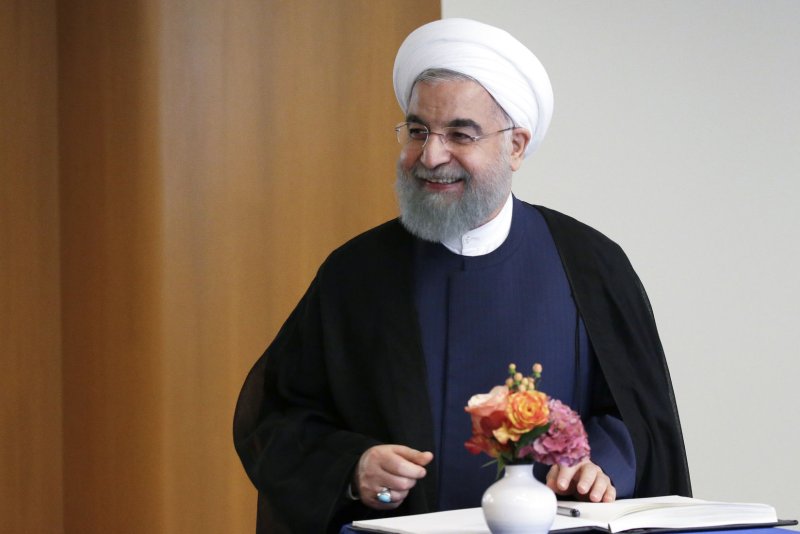Iran, led by President Hassan Rouhani, plans to remain in Syria once the war ends to consolidate its expansion across the Middle East. File Photo by John Angelillo/UPI |
License Photo
BEIRUT, Lebanon, Dec. 5 (UPI) -- Iran is poised to consolidate its growing power in the Middle East as it tries to complete a strategic land bridge from the Arabian Gulf to the Mediterranean despite advances in Syria by the United States and its allies.
Having cleared the last obstacles for the Shia-controlled corridor on the Iraq-Syria border, the Islamic Republic, unlike its ally Russia, plans to remain in Syria permanently and is building military bases in southern Syria, moves that Israel sees as a strategic threat.
Daveed Gartenstein-Ross of the Foundation for Defense of Democracies, a pro-Israel Washington think tank that has been highly critical of the U.S. failure to produce a military-economic strategy to prevent Syria falling apart, said the absence of a U.S. blueprint helped Iran accumulate power.
"Iran has basically created its own foreign legion," he observed. "You've had a variety of Shia militias from other countries... come to the Syria-Iraq theaters. ...That's something that gives it the power to project power significantly."
Iran plans to remain in Syria once the war ends to consolidate its expansion across the Middle East, preferably with Bashar al-Assad as a puppet president.
Tehran recently recruited thousands of Afghan and Pakistani Shias - one estimate is as high as 6,000 - swelling its force of Shia mercenaries, which constitutes an arm of the Islamic Republic's extra-territorial military forces.
Along with Hezbollah's battle-hardened Lebanese veterans, their main purpose is to regain as much valuable Syrian territory, such as oilfields, as possible before any peace deal is clinched.
"Unless the U.S. commits to preventing the march of these forces, Iran will be the ultimate victor in the Syrian conflict, thereby expanding its influence across the Middle East and setting the stage for future conflict - with both Sunni states and with Israel," observed David Adesnik, director of research at the Foundation for Defense of Democracies.
"Indeed, this would likely mark not the end of a war but rather the beginning of yet another."
This article originally appeared at The Arab Weekly.















